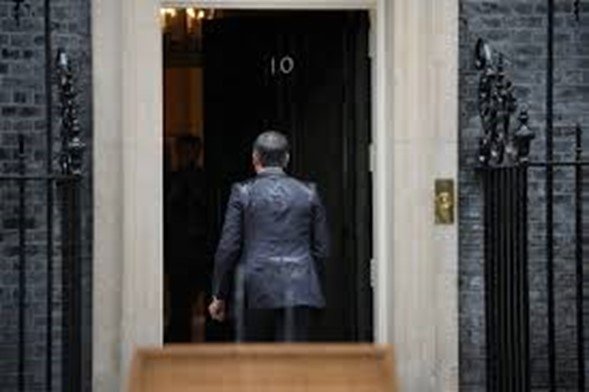
How will the General Election result impact the housing market?
1.5m new homes, a Freedom to Buy Scheme and changes to stamp duty are among Labour’s manifesto pledges.
Following Labour securing a majority government in last week’s General Election, what could this mean for mortgage rates and the wider housing market?
Labour have promised 1.5m new homes over the next parliament. In a blog by William Lloyd-Hayward, chief operating officer at The Brightstar Group, he outlined Labour’s plan for housebuilding:
- Create a number of New Towns that would invigorate building at scale and ensure much needed accompanying infrastructure in the form of schools, GP surgeries and transport links.
- Re-think the green belt.
- Mandatory house building targets reintroduced across local authorities.
- 40% affordable housing. Angela Rayner, the shadow communities secretary, said: “Developers have been let off the hook and for too long allowed to wriggle out of their responsibilities to provide new social and affordable homes. Labour will robustly hold them to account”.
- 300 additional planning officers to help resource a largely broken planning system, funded by taxing foreign buyers.
- A Freedom to Buy Scheme to help people secure a mortgage with ‘funded deposits’.
- First dibs for local people on new developments, ending the farce of entire developments sold off to international investors before local people get a look in.
- Reform of compulsory purchase rules to get homes built.
Labour have also pledged to lower the stamp duty threshold for first-time buyers from £425,000 to £300,000 in April 2025 and increase the higher stamp duty rate on purchases of residential property by non-UK residents by 1%.
Capital Gains Tax
Labour have not ruled out increasing Capital Gains Tax, in a potential further deterrent for landlords. However, they have said they will not apply CGT to primary residences.
Amy Reynolds, head of sales at Richmond estate agency Antony Roberts, said: “If landlords end up selling in larger numbers, worried about the potential of increased capital gains tax, we may see an influx of ex-rental properties to the market. This could lead to a fall in house prices but of course will also reduce rental stock which so many first-time buyers rely on while saving for a deposit.”
Iain McKenzie, CEO of The Guild of Property Professionals, commented: The buy-to-let market may see the most volatility under the new government, as landlords are facing difficulties due to high borrowing costs and regulatory changes.
“Potential increases to Capital Gains Tax might cause more landlords to exit the market, or pass the increased costs over to tenants.
“This must be avoided at all costs, as rent prices have been unaffordable for many tenants during the cost-of-living crisis. A proposed ban on ‘no fault’ evictions will be a safety net for some tenants, but it remains to be seen how significantly it will impact landlords.”
However, James Quarmby, a partner in the private wealth team at law firm Stephenson Harwood, said: “I’m not expecting a CGT rise this Autumn or anytime soon. Mainly because Labour front benchers have been saying ‘there are no plans to raise CGT’ in dozens of interviews. If the first thing they do when elected is to raise CGT, then it will look like they have been dishonest when campaigning. That would not be wise, even with a big majority.”
Freedom to Buy scheme
Labour plan to introduce a new Freedom to Buy scheme to replace the Mortgage Guarantee Scheme.
Karen Noye, mortgage expert at Quilter, said: “The Freedom to Buy scheme would see the current Mortgage Guarantee Scheme made permanent. However, the scheme has achieved very little take up since launch as it does not tackle the fundamental issue of high property prices relative to average incomes. What’s more, with house prices still at risk of fluctuating, negative equity could become a significant issue for those taking such high loan to value mortgages. Halifax reported the average UK home now costs £288,455, meaning a 95% mortgage supported by the guarantee scheme would require a £14,422.75 deposit. Having such a relatively low deposit amount would leave very little wiggle room in terms of house price changes before falling into negative equity.
“Prospective first time buyers and homeowners across the country have been crying out for help for some time now. Labour must follow through on its commitment to increase housing supply in the first instance, and it should explore alternative options to ensure that more people are supported in getting onto the housing ladder without needing to make potentially risky decisions when it comes to high loan to value mortgages.”
Tim Bannister, Rightmove’s property expert, agreed: “We think there is an opportunity to go further in giving support to first-time buyers. Whilst a permanent mortgage guarantee scheme provides the certainty that this option will be available, from our research we can see that only a small number of first-time buyers are likely to benefit from it. Making the existing stamp duty thresholds permanent for first-time buyers would be a start, and then there is an opportunity to look at innovative solutions to help first-time buyers with both their deposit, and being able to borrow enough from a lender in the longer term.”
In addition, a study from Barratt Homes reveals that 88% of first-time buyers are unaware of the current scheme, which means many may not benefit from its predecessor under the new government.
Could we see a post-General Election market pick-up?
Data from Rightmove shows that the average first-time buyer mortgage payment has risen by 61% since the last election year of 2019. Over the last five years, the average mortgage payment for a typical first-time buyer home has risen from £667 per month to £1,075 per month.
The increase in average mortgage payments for first-time buyers has significantly outpaced wage growth, which is up by 27% over the same five-year period.
Simon Jackson, managing director of SDL Surveying, predicts that if we see what is expected — a summer cut to the Bank of England’s base rate — accompanied by a post-election ‘buzz’, we may well see a welcome boost in transactions; especially if there is some form of housing initiative such as a stamp duty cut from the new Government.
Data from eXp UK shows that house prices have climbed by an average of 5.4% in the year following a General Election since the 1980s. Its analysis revealed house prices have increased in the year following every General Election since 1983, with the exception of 1992 and 2010.
However, Tom Bill, head of UK residential research at Knight Frank, was more cautious, stating: “One general point to make is that a combination of inexperience and instinctive caution means the new government is unlikely to make big decisions quickly.
“There will be no mini-Budget moment, avoiding the type of adverse reaction on financial markets and spike in mortgage rates seen after Liz Truss took power in September 2022. There has been minimal reaction on markets so far, which had expected a Labour victory.
“We will get a clearer sense of its plans in the autumn Budget once the Office for Budget Responsibility has examined its numbers. An even fuller picture will emerge at the spring Budget in 2025. Until then, we will have to rely on what Labour says to anticipate what its victory means for the UK housing market.”
Sam Mitchell, CEO of Purplebricks, concluded: “With 16 housing ministers since 2010, the industry is desperate for some certainty and clear strategic direction from the government.”
ROZI JONES | EDIT









